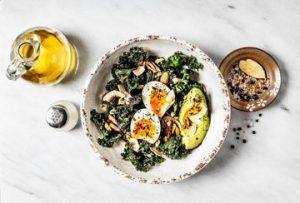There’s a difference between losing weight and losing fat. All effective body fat loss diet plan types focus on developing changes that you can live with permanently, like what you eat and how active you are.

Once you drop your intake of carbs and fat, improve your activity level and acquire a positive attitude towards your body fat loss diet plan, it’s only a matter of time before you enjoy dramatic changes in your appearance and fitness.
A Key Principle To Keep In Mind
A body fat loss diet plan beats exercise workouts hands down when it comes to getting rid of extra rolls of belly fat. If there’s one principle to keep in mind, it’s to stick to your plan.
Many body fat loss diet plan variations, however, are unnecessarily complicated.
It’s hard enough to gain the discipline and mental strength needed to stick with a diet. Why make it harder by tossing in too many rules?
One diet says you should reduce the size of your serving portions. Another focuses on the kind of foods that lowers your calorie count. And some experts argue over the pros and cons of a low carb diet, no carb diet or ketogenic diet for fat loss.
Learn more about Shaun Hadsall’s “14 Day Fat Loss Plan” : click
So what’s a girl to do if she wants fat loss diet plans that’ll help her burn off more fat?
It’s simple. Just follow these 9 guidelines.
1. Calories Are Important
Reducing your calorie intake so that you always burn off more energy than you consume is the cornerstone of all fat loss diet plans. A good rule of thumb is to aim for 20% less calories than your regular maintenance level.
You can’t rush the process and stay healthy. For that, you must aim to lose no more than 0.5 to 2 pounds per week. If you try to get rid of fat faster, you’ll end up starving yourself of calories to the point you are uncomfortable and even suffering.
Then you won’t be able to motivate yourself to stick to your body fat loss diet plan.
2. Get Enough Protein
If you want to lose fat while retaining muscle mass, you need an adequate intake of protein in your diet. The ideal amount is around 0.75 to 1.5 grams of protein per pound of body weight.
The best quality protein comes from whole food sources including chicken, meat, and fish. Occasionally, protein supplements and powders can help make up any deficit.
3. Limit Your Fat Intake
Typically, between 20% and 30% of your total daily calorie intake should come from fats. The choice of food items in your fat loss diet plans should contain mono- and poly-unsaturated fatty acid sources like nuts, fish oil and olive oil.
Saturated fats are best avoided and should make up no more than a third of your total fat consumption.
Essential fatty acids are also important to include in your diet plans. Fish oil supplements are rich in omega-3 fatty acids.
4. Carbs Make Up The Balance
Ideally, your body fat loss diet plan will use carbs to make up the remainder of your daily calorie intake (after the portion that you get from eating protein and fat).
This should come from unprocessed sources like potatoes, rice, oats, and whole grain. Refined carbohydrates are better avoided, or limited.
5. Make It Fun
If your diet and exercise plan for fat loss make you feel like you’re being tortured, you’ll naturally look for excuses to give it up.
That’s no good.
So formulate your body fat loss diet plan in a fashion that you’ll actually look forward to sticking with it.
How many meals you eat isn’t quite as important as what each one includes. Your total calorie intake should be less than what you burn off – but within that limit, you can tailor your meal plans to your convenience and choice. Eat foods that you like and that provide high quality nutrition.
6. Cheating Isn’t Bad
If you give in to a craving and indulge yourself now and then, it’s not a crime. Nor will it interfere with your overall fat loss goals.
Many dieters feel more motivated to stay with their diet plan when they are permitted to cheat from time to time. But don’t make it a habit. No more than 1 or 2 ‘cheat meals’ are permitted per week.
7. Workouts Need More Nutrition
It’s important that you get enough protein and carbs immediately before and after exercise workouts.
A protein milkshake half an hour before you start exercising, and a balanced meal shortly after you finish gives your muscles all they need to grow bigger and stronger.
8. Consider Supplements
While you don’t need to take supplements to lose weight, some like whey protein powder, fish oil and multivitamins can enhance fat loss and improve your health overall.
They are especially helpful when your regular meals don’t provide you with enough nutrients to meet your daily needs.
9. Combine Dieting With Exercise
No, exercise isn’t absolutely necessary for fat loss. But it helps when you include a workout regimen as part of your fat loss diet plans.
It also helps you gain muscle and develop a healthier physique. Because muscle mass requires more calories to maintain, your body will continue to burn off more calories if you work out regularly.